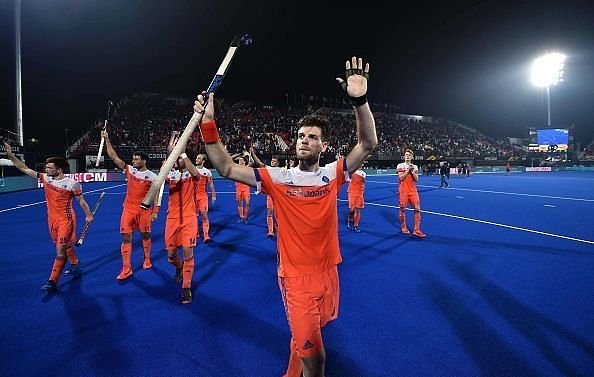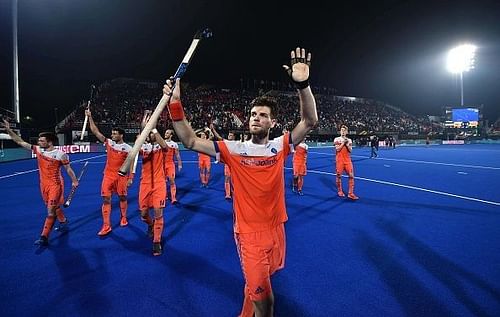
Hockey World Cup 2018: India vs Netherlands - 5 talking points

Manpreet Singh almost tumbled over, as he made one last desperate surge with less than a minute remaining on the clock, at the end of a pulsating last quarter of a truly epic quarter-final.
The captain lunged forward using every ounce of available adrenaline after what had been an intense and energy-sapping fifty-nine minutes, as he attempted to deliver an assist to Lalit who overran the ball by a split-second, taking the pass on his foot instead of the outstretched stick.
Follow Sportskeeda and don't miss a minute of action from Hockey World Cup 2018.
Manpreet's final sprint got the crowd to their feet but the last glimmer of hope soon faded as thousands of Indian supporters at the Kalinga Stadium - and those watching the action at home, shook their heads in collective disbelief as, for the umpteenth time, the Indian men's hockey team failed to conquer, after promising much.
It was a heroic effort, on an evening when the contest could have gone either way. Both sides erred at crucial times but the Dutch kept their head in the vital final quarter while the Indians made a couple of fatal errors that will continue to haunt them for a long time to come.
We take a look at 5 factors that may have influenced the final outcome of the match that ended with a 2-1 scoreline in favor of The Netherlands with inputs from Jude Felix, Ashish Ballal, and Siegfried Aikman.
#5 PC conversions in crunch situations separate the men from the boys
In an earlier interview with Sportskeeda, India's Analytical Coach Chris Ciriello had clearly emphasized that the true test for a drag-flicker is to convert the PCs when a team is trailing and in dire need of a goal.
"Under pressure is when you stand out. It is easy to be able to score goals when you are already 2-0 or 3-0 up - but it is the one goal you have to fight for when you are down."
The ace drag-flicker who loved scoring PC hattricks in big finals, having done so in the World Cup final of 2014 and the Commonwealth Games final the same year, went on to say that there is a need for drag-flickers to become unpredictable in the big games to offset the best-laid plans of the opposition defence.
"The most important thing is that we need to become unpredictable - but most of the time, we are too predictable. It is human nature, under pressure, you go back to doing what you are most comfortable doing. So, we do need to have more variety."
While the Indians did score early with a PC against the Dutch, a golden chance presented itself yet again with five minutes left on the clock.
It was just the moment when the Indians should ideally have engineered a well-practiced slick variation, and questions will remain as to why the hosts failed to surprise the Dutch even after months of preparation with their short corners.